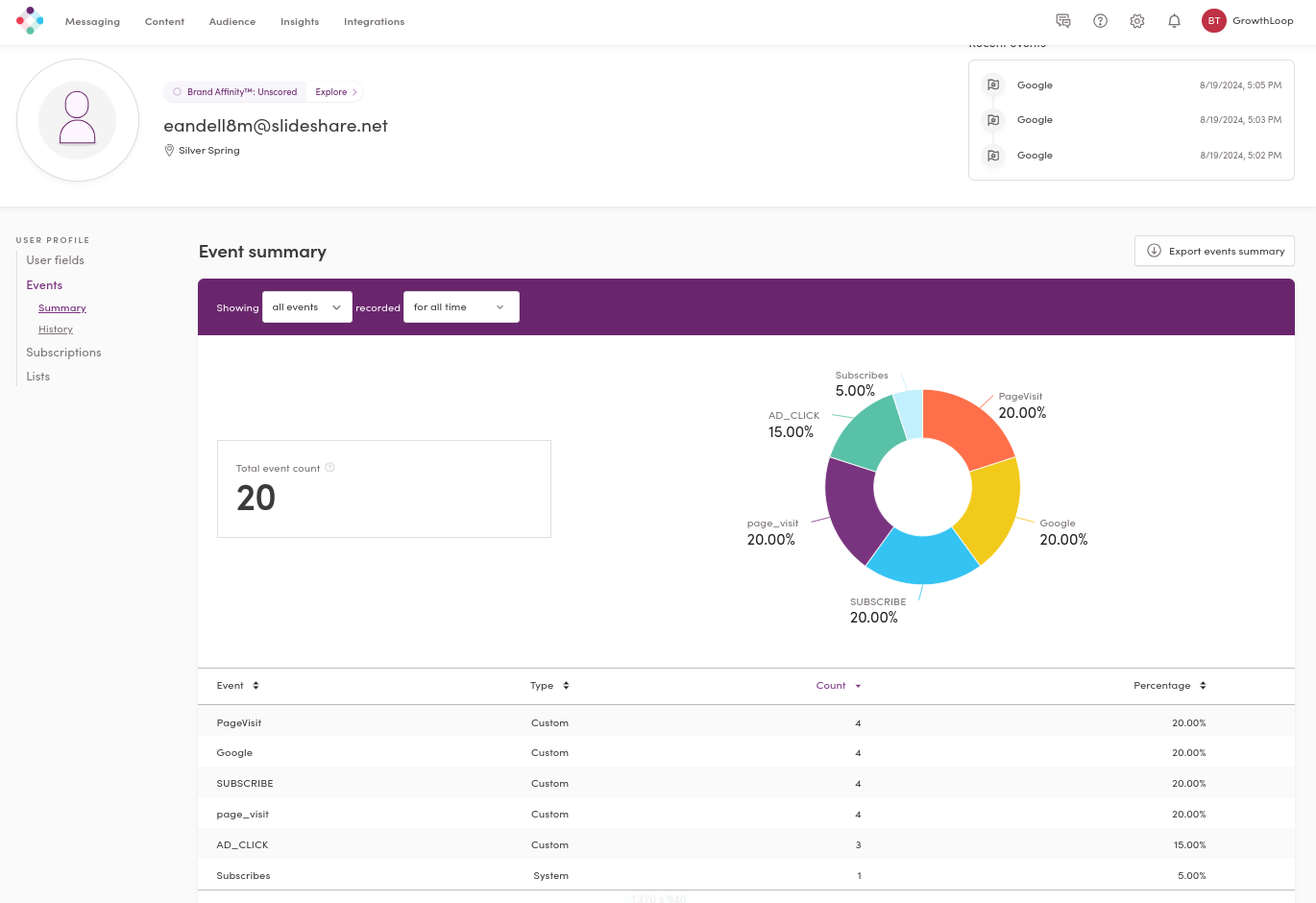Iterable
Enhance your Iterable campaigns with powerful customer data from your data warehouse.
In this guide, we’ll walk you through syncing customer data from your data warehouse into Iterable to enhance your customer engagement. Let's get started!
Supported Objects
GrowthLoop enables syncing to these Iterable objects:
Object | Description | Sync Modes | Field Mappings (Required) | Field Mappings (Optional) |
|---|---|---|---|---|
| Sync and track specific customer actions, such as clicks, page views, or interactions, within the platform | Insert (adds new event) Update (modifies existing events)
|
AND
|
|
| Create, enrich, and update users with any additional information you define | Insert (adds new profiles) Update (modifies existing profiles) Upsert (combines insert and update) |
AND
|
Prerequisites
- To set up Syncs in Iterable, ensure you have an active Iterable account and have configured it as a destination. Click here to learn how.
Create and configure sync
- Navigate to the Syncs tab on the left sidebar and click Create Sync in the top right corner.
- Set up your Sync with the following details:
- Sync Name: A clear, friendly name for your sync.
- Sync Frequency: How often data should sync to the destination.
- Update Rule: The default method for syncing data to the destination.
- Dataset / Table: The table containing your events or user data.
- Match Field: The column used to identify users in your source table for the destination system.
- Dataset Unique Field: The column with unique values for each user in the table.
- Connection: Choose the destination for syncing data. Select Iterable.
- Object Type: Choose the data object to sync:
EventorUser - Match Field: The column used to match and identify users in the destination system based on your source data.
- Once you finish selecting/inserting the required fields, click Save Sync.
- Next, you'll need to add field mappings based on the object you're syncing to. In this case, we're syncing to the
Eventobject, which requires the following:Event Name: A distinct identifier for a specific customer action, which can be either a standard event like “Subscribe” or custom event.EmailorUser ID: Specify either the email associated with the user’s profile or the unique ID for the user profile in Iterable.
- To map the fields, select the column that represents the
Event Namefrom the drop-down under Source. - Under the Destination section, select Event Name from the drop-down.
- Click Add Mapping to include a new Source -> Destination row underneath.
- Repeat steps 5 through 7 to map the remaining required destination field:
EmailorUser ID - After mapping all the fields, clicking Update Sync will prompt you with the following two options:
- Updates Only: We recommend you go with the this option, especially if you’re setting up the sync for the first time.
- Back-fill: This option is when you are updating an existing Sync with newly mapped fields and you’d like all your already synced events to have those fields backfilled for them. This operation can be very expensive and time consuming on your underlying Data Warehouse, so please choose that option if you’re absolutely sure.
- Finally, click the toggle at the top of the page to enable!
- To view your event data in Iterable, go to the Audience section, select User Lookup, search for a specific user, and then choose the Events tab.

SuccessYou have successfully created an
Eventsync to Iterable!
NoteExperiencing any issues configuring Syncs to Iterable? Reach out to us at [email protected] and we’ll be in touch shortly!
Updated 9 months ago
Want to discover more ways to combine GrowthLoop and Iterable? Click below for a full list of use cases!